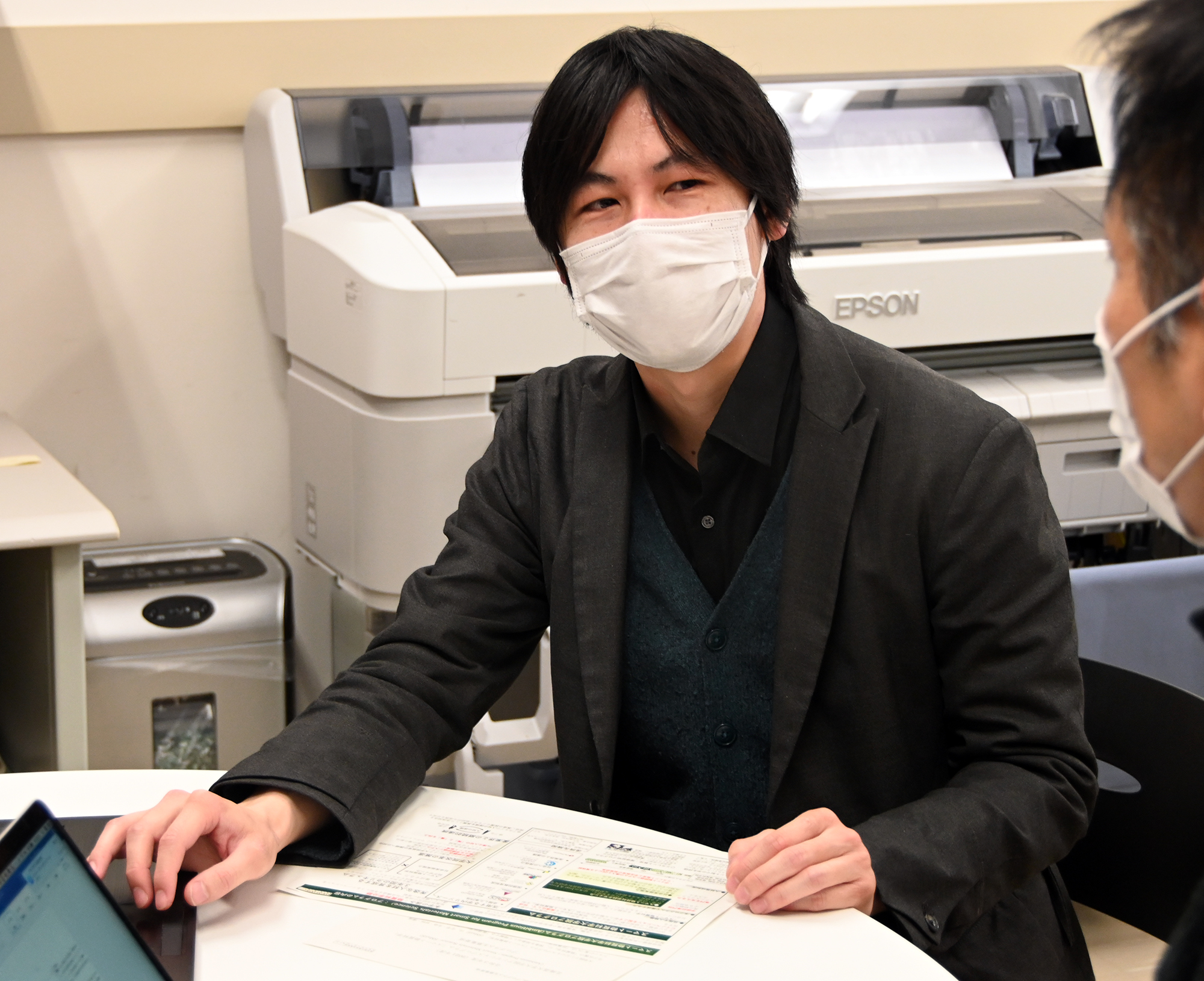北海道大学URAとして働く堀内浩水(ほりうちこうすい)さんのメッセージを紹介します。
プロフィール:1989年帯広市生まれ。2012年、北海道大学理学部生物科学科(高分子)卒業。2018年、北海道大学大学院医学研究科博士課程修了。博士(医学)。2018年より北大URAとして勤務。2019年度、CoSTEP(北大科学技術コミュニケーター養成プログラム)修了。趣味は演劇やオンラインイベントの企画や実施。
研究支援職としてのURA
私は北海道大学理学部を卒業し、その後2018年に博士号を取得し北海道大学のURA職として働き始めました。URAは文部科学省が実施した「リサーチ・アドミニストレーターを育成・確保するシステムの整備」事業に端を発し、それ以降全国の大学で徐々に導入されてきました。URAは新しい専門職として大学の研究を支援する目的で導入されました。本学でも2012年にURAステーションを設置し全学の研究支援業務を行っています。
研究支援の内容は、科研費をはじめとする研究費(外部資金)の獲得支援や、研究成果の分析、広報、共用設備の運営など、多岐にわたります。本学では「経営マネジメント型URA」として、大学全体の運営にかかわる企画を考えて実行に移します。
博士課程の経験とURA
URAは学内の教員と直接やり取りする機会が多く、学位が非常に有利に働きます。研究者と話しをする際、研究内容や手法を理解するために博士課程で培われた力がとても役に立ちます。私の専門である生命科学の分野はもちろん、異なる分野の研究者と話をしていてもデータの解釈や論理的に内容を理解することができるのは、博士課程での経験あるからだと思います。さらに、自分の研究分野と異なることが良い方向に作用することもあります。大型の外部資金の申請などでは、異なる分野の研究者(審査員)にその研究を理解してもらう必要があります。そのため、異なる分野からの視点は非常に重要です。研究分野にかかわらず正しく研究のストーリーを理解することが申請書のブラッシュアップに貢献できると感じます。

URAになってよかったこと
URAになることで幅広い研究に触れることができるようになり、研究の多様な展開や、社会との関わりを学ぶことができました。一言に研究といっても様々です。同時に、多様性がありながら論理的な部分が共通しているということに驚きました。
また、私が今関わっている文理融合のプロジェクトを通して、人文社会科学の奥深さを経験しています。人文社会科学を通して新鮮な発見をしながら、理工系科学と共通の部分もあると感じました。そうした共通点と相違点をうまく組み合わせて、プロジェクトを進められるように努めていきたいです。
さらに大学の中だけでなく、企業や地域の方と繋がっていくことが重要になるでしょう。そのためにも、理系も人文社会系も含めた科学的な活動を学外に向けて発信することが重要になります。さらに、発信するだけでなく様々なコミュニケーションをとることが求められるようになるでしょう。学問同士の融合だけでなく、科学と社会の繋がりを生み出すこと(サイエンスコミュニケーション)の実践をURAという立場で実践していきたいと思います。
Ph.Discoverの取り組み
Ph.Discoverの取り組みによって、博士課程に在籍している院生や進学に迷っている学生にはとても有益な情報源になると思います。(私が博士課程に在籍していたときには、Ph.Discoverのような取り組みはありませんでした。)これからは、社会そのものが大きく変容するため、既存の枠組みを見直し、物事をゼロから考えられる人材が求められるようになります。研究の成果やその分野の専門性だけでなく、博士課程で身につく汎用的な能力が重要になるのです。Ph.Discoverのような取り組みを通じ、学位取得後にどのように社会で活躍するか想像できるようになると思います。私もPh.Discoverに掲載される記事を見て、新たな活躍の仕方を知ることが一つのモチベーションとなっています。今後もPh.Discoverの活動に注目していきます。
